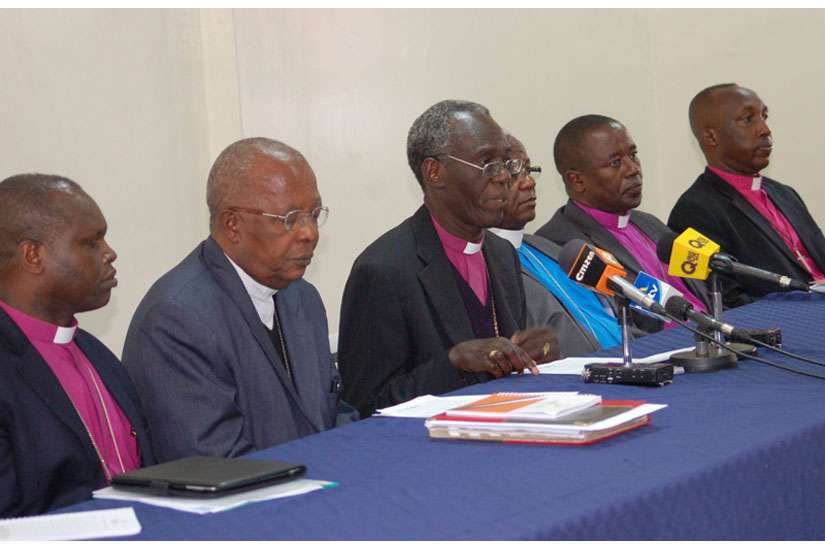At a news conference in Nairobi on Dec. 10, the leaders said Muslims must redouble efforts to preach religious tolerance and end youth radicalization.
In what the leaders describe as a dangerous trend, 64 Christians were executed in or near Mandera, a town on the border with Somalia, in the past three weeks. In both incidents, non-Muslims were separated from Muslims.
On Dec. 2, militants shot 36 quarry workers. The militants asked workers to recite the Shahada, the Muslim profession of faith, and shot those who refused.
On Nov. 22, al-Shabab militants hijacked a bus and killed 28 non-Muslims, 21 of them teachers returning home for Christmas.
“This situation regrettably leads us to conclude these attacks, perpetuated by people claiming to be al-Shabab, are taking a religious angle,” Anglican Archbishop Eliud Wabukala said at the news conference.
Roman Catholic, Anglican, Presbyterian, Methodist and evangelical African Inland Church leaders said Kenya had witnessed more than 20 attacks this year alone, which had left more than 200 people dead and many others injured. The attacks, which initially targeted Christian places of worship, now target Christians in public transportation and workplaces, according to the leaders.
“They must move beyond merely condemning the attacks to initiating practical steps to reach out at the sympathizers of terror and help us build bridges between faiths and communities,” said Wabukala.
Catholic Cardinal John Njue said that although recent executions displayed religious patterns, Kenyans should avoid statements that further divide the country along religious lines.


